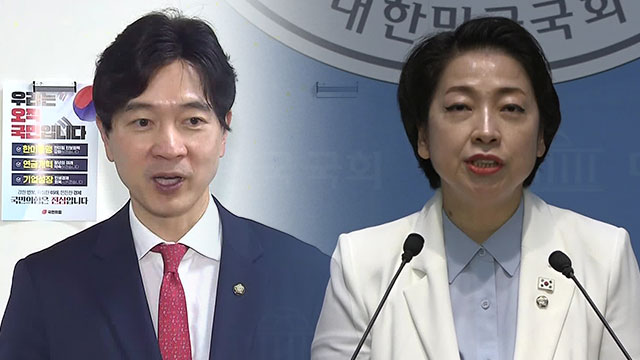UK companies embrace renewable energy to tackle climate crisis
입력 2024.12.14 (00:57)
읽어주기 기능은 크롬기반의
브라우저에서만 사용하실 수 있습니다.
[Anchor]
As the climate crisis becomes a reality, companies are increasingly concerned about carbon reduction.
In the UK, more companies are using renewable energy in their production processes.
Kim Min-kyung, a meteorology specialist reporter, has covered those who are finding new opportunities through carbon reduction.
[Report]
On a snow-covered hill, wind turbines are spinning vigorously, and solar power facilities with a capacity of 1.8 megawatts are densely packed on rooftops; this is an ice cream factory.
The renewable energy produced here accounts for 70% of the electricity used in the factory.
[Mac Mackie/Chairman of the Scottish Ice Cream Company: "To get the best of both worlds, you need to be producing your product with renewable energy but at the same time being competitive price-wise. So, that's what we've managed to achieve. We have the wind turbines..."]
There is also a wind turbine behind this distillery.
By using renewable energy in the distillation process, they have reduced carbon emissions by 1.53 kg per bottle of alcohol, even branding it as climate-friendly liquor.
This wind turbine supplies 75% of the required electricity.
The reason companies and individuals are actively transitioning to renewable energy is that this method is the most economical.
Although the initial cost of establishing renewable energy is high, there are no fuel costs, so the cost of power generation drops sharply over time.
UK companies are alleviating the burden of installing renewable energy facilities with government support, and they are also selling any surplus renewable energy.
Unlike South Korea, where energy is bought and sold only through the national power grid, transactions are possible through private power retail companies.
[Julian Leslie/Head of National Energy System Strategy at the UK Department for Business, Energy & Industrial Strategy: "It changes with the weather so the control rooms being ready for that, having the tools, the systems, the situation awareness and the flexibility in sources of generation or being able to flex the demand is the key."]
In order for South Korea to turn the climate crisis into an opportunity, it is pointed out that systematic policies must be established in all processes from renewable energy production to consumption.
This is Kim Min-kyung reporting from London for KBS News.
As the climate crisis becomes a reality, companies are increasingly concerned about carbon reduction.
In the UK, more companies are using renewable energy in their production processes.
Kim Min-kyung, a meteorology specialist reporter, has covered those who are finding new opportunities through carbon reduction.
[Report]
On a snow-covered hill, wind turbines are spinning vigorously, and solar power facilities with a capacity of 1.8 megawatts are densely packed on rooftops; this is an ice cream factory.
The renewable energy produced here accounts for 70% of the electricity used in the factory.
[Mac Mackie/Chairman of the Scottish Ice Cream Company: "To get the best of both worlds, you need to be producing your product with renewable energy but at the same time being competitive price-wise. So, that's what we've managed to achieve. We have the wind turbines..."]
There is also a wind turbine behind this distillery.
By using renewable energy in the distillation process, they have reduced carbon emissions by 1.53 kg per bottle of alcohol, even branding it as climate-friendly liquor.
This wind turbine supplies 75% of the required electricity.
The reason companies and individuals are actively transitioning to renewable energy is that this method is the most economical.
Although the initial cost of establishing renewable energy is high, there are no fuel costs, so the cost of power generation drops sharply over time.
UK companies are alleviating the burden of installing renewable energy facilities with government support, and they are also selling any surplus renewable energy.
Unlike South Korea, where energy is bought and sold only through the national power grid, transactions are possible through private power retail companies.
[Julian Leslie/Head of National Energy System Strategy at the UK Department for Business, Energy & Industrial Strategy: "It changes with the weather so the control rooms being ready for that, having the tools, the systems, the situation awareness and the flexibility in sources of generation or being able to flex the demand is the key."]
In order for South Korea to turn the climate crisis into an opportunity, it is pointed out that systematic policies must be established in all processes from renewable energy production to consumption.
This is Kim Min-kyung reporting from London for KBS News.
■ 제보하기
▷ 카카오톡 : 'KBS제보' 검색, 채널 추가
▷ 전화 : 02-781-1234, 4444
▷ 이메일 : kbs1234@kbs.co.kr
▷ 유튜브, 네이버, 카카오에서도 KBS뉴스를 구독해주세요!
- UK companies embrace renewable energy to tackle climate crisis
-
- 입력 2024-12-14 00:57:13

[Anchor]
As the climate crisis becomes a reality, companies are increasingly concerned about carbon reduction.
In the UK, more companies are using renewable energy in their production processes.
Kim Min-kyung, a meteorology specialist reporter, has covered those who are finding new opportunities through carbon reduction.
[Report]
On a snow-covered hill, wind turbines are spinning vigorously, and solar power facilities with a capacity of 1.8 megawatts are densely packed on rooftops; this is an ice cream factory.
The renewable energy produced here accounts for 70% of the electricity used in the factory.
[Mac Mackie/Chairman of the Scottish Ice Cream Company: "To get the best of both worlds, you need to be producing your product with renewable energy but at the same time being competitive price-wise. So, that's what we've managed to achieve. We have the wind turbines..."]
There is also a wind turbine behind this distillery.
By using renewable energy in the distillation process, they have reduced carbon emissions by 1.53 kg per bottle of alcohol, even branding it as climate-friendly liquor.
This wind turbine supplies 75% of the required electricity.
The reason companies and individuals are actively transitioning to renewable energy is that this method is the most economical.
Although the initial cost of establishing renewable energy is high, there are no fuel costs, so the cost of power generation drops sharply over time.
UK companies are alleviating the burden of installing renewable energy facilities with government support, and they are also selling any surplus renewable energy.
Unlike South Korea, where energy is bought and sold only through the national power grid, transactions are possible through private power retail companies.
[Julian Leslie/Head of National Energy System Strategy at the UK Department for Business, Energy & Industrial Strategy: "It changes with the weather so the control rooms being ready for that, having the tools, the systems, the situation awareness and the flexibility in sources of generation or being able to flex the demand is the key."]
In order for South Korea to turn the climate crisis into an opportunity, it is pointed out that systematic policies must be established in all processes from renewable energy production to consumption.
This is Kim Min-kyung reporting from London for KBS News.
As the climate crisis becomes a reality, companies are increasingly concerned about carbon reduction.
In the UK, more companies are using renewable energy in their production processes.
Kim Min-kyung, a meteorology specialist reporter, has covered those who are finding new opportunities through carbon reduction.
[Report]
On a snow-covered hill, wind turbines are spinning vigorously, and solar power facilities with a capacity of 1.8 megawatts are densely packed on rooftops; this is an ice cream factory.
The renewable energy produced here accounts for 70% of the electricity used in the factory.
[Mac Mackie/Chairman of the Scottish Ice Cream Company: "To get the best of both worlds, you need to be producing your product with renewable energy but at the same time being competitive price-wise. So, that's what we've managed to achieve. We have the wind turbines..."]
There is also a wind turbine behind this distillery.
By using renewable energy in the distillation process, they have reduced carbon emissions by 1.53 kg per bottle of alcohol, even branding it as climate-friendly liquor.
This wind turbine supplies 75% of the required electricity.
The reason companies and individuals are actively transitioning to renewable energy is that this method is the most economical.
Although the initial cost of establishing renewable energy is high, there are no fuel costs, so the cost of power generation drops sharply over time.
UK companies are alleviating the burden of installing renewable energy facilities with government support, and they are also selling any surplus renewable energy.
Unlike South Korea, where energy is bought and sold only through the national power grid, transactions are possible through private power retail companies.
[Julian Leslie/Head of National Energy System Strategy at the UK Department for Business, Energy & Industrial Strategy: "It changes with the weather so the control rooms being ready for that, having the tools, the systems, the situation awareness and the flexibility in sources of generation or being able to flex the demand is the key."]
In order for South Korea to turn the climate crisis into an opportunity, it is pointed out that systematic policies must be established in all processes from renewable energy production to consumption.
This is Kim Min-kyung reporting from London for KBS News.
-
-

김민경 기자 minkyung@kbs.co.kr
김민경 기자의 기사 모음
-
이 기사가 좋으셨다면
-
좋아요
0
-
응원해요
0
-
후속 원해요
0















이 기사에 대한 의견을 남겨주세요.